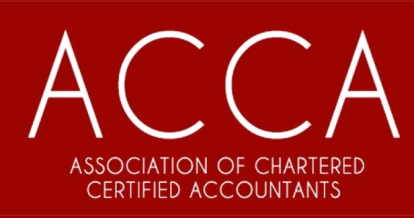Employers in 2025 are not hiring accountants who just know theory. They want professionals who can think, act, and make decisions that move business forward. The ACCA Course Full Form is the Association of Chartered Certified Accountants, and those four letters carry weight only when your subject knowledge shows real-world impact.
If you plan to complete your ACCA soon or are midway through, you need to know which papers matter most to hiring managers today. Some subjects give you a head start in audit and finance roles, while others make you stand out in analytics, strategy, or consulting. Let’s talk straight about which ACCA subjects carry the most weight and why.
1. Financial Management (FM)
Every company in 2025 tracks performance with numbers, not gut feelings. Financial Management is where you learn to make those numbers work. The paper builds skill in investment appraisal, business valuation, and working capital control – all practical tools employers care about.
Managers want candidates who can read a balance sheet and spot patterns. They also expect you to recommend what action makes financial sense. This is why recruiters keep asking about FM in interviews. It’s one subject that separates a report-preparer from a decision-maker.
If you’re serious about a finance role, go beyond the formulas. Work on cases, analyze trends, and link them to real business outcomes. Employers want thinkers, not calculators.
2. Audit and Assurance (AA)
Audit and Assurance in ACCA teaches how to think like an investigator, not just an accountant. You learn how companies run, where things can go wrong, and how to keep systems honest. The subject sharpens your eye for internal controls and fraud signs while grounding you in ethics.
Employers trust candidates who understand audit because they know you can keep integrity intact even when deadlines or pressure hit. It’s one of those subjects that quietly builds confidence and respect in real work settings.
3. Financial Reporting (FR)
This subject holds power. Financial Reporting is the bridge between accounting and business decisions. Employers in 2025 value people who can interpret IFRS standards and convert raw data into accurate statements.
Each quarter, management relies on reports that show how the business is performing. Strong FR skills build trust among investors, managers, and regulators. That trust often becomes the reason some professionals rise faster than others.
The FR paper also builds the foundation for advanced subjects later in your ACCA Course Full Form. If you plan to work in multinational settings, mastery of reporting standards is non-negotiable.
4. Strategic Business Leader (SBL)
If one subject represents the modern accountant, it’s SBL. The paper pushes you beyond technical answers. It asks you to think like an executive – weigh decisions, assess risk, and communicate value.
Employers don’t hire accountants only for number-crunching. They hire them to lead teams, advise boards, and shape direction. SBL marks the point where you start thinking like a leader. Candidates who master it often find themselves moving into managerial, consulting, or leadership paths.
To stand out, treat SBL like real business work, not an exam. Analyze case studies like live company scenarios. The more practical your thinking, the stronger your professional image.
5. Performance Management (PM)
The PM gets overlooked but employers don’t skip it. In 2025, every finance function measures performance through metrics, cost systems, and KPIs. If you understand performance management, you speak the same language as operations teams and senior executives.
This paper bridges finance with how resources are managed. People who excel in it move ahead faster because they can link business performance directly to profit results.
Don’t approach Performance Management like it’s only about equations. Strengthen your reasoning instead. Work through real business cases where choices hit profit and cash flow. That’s what catches an interviewer’s attention.
6. Advanced Financial Management (AFM)
AFM is where finance turns strategic. This paper challenges you to think about investment appraisal at a global level, mergers, and capital markets. Employers value it because it shows your readiness to handle big financial decisions, not just bookkeeping.
Data entry is mostly automated in 2025. Employers now value those who can analyze financial results and advise leaders with clarity. If you’re strong in AFM, you’re already working at that standard.
It helps you stand out for analytical and finance-driven positions, including Financial Analyst or Corporate Finance Specialist.
7. Taxation (TX)
Taxation doesn’t grab attention at first, but employers still rate it highly. Every year, compliance rules tighten and laws keep changing. If you understand tax planning, how to calculate liabilities, and how regulations work, you become useful across multiple sectors.
The TX paper under ACCA sharpens your technical awareness of taxation. Even without focusing on tax as a career, understanding how it shifts profit and cash movement gives you an upper hand. Employers like to test that logic to see how you think about compliance and cost efficiency.
How Employers Think in 2025
Modern recruiters don’t want accountants who only know the rules. They expect people who can read the numbers, explain them clearly, and help make smart calls. During your ACCA prep, focus on learning subjects that train you to solve real business issues.
Employers today filter candidates not just by qualification but by how they apply their learning. The subjects above help you build that credibility.
Final Thought
Selecting ACCA subjects wisely means thinking about what companies value in 2025: judgment, business insight, and ethics. If you’re enrolling or progressing in your ACCA Course Full Form, pick a place that builds ability for real work, not just for passing papers.
Zell Education continues to stand out for blending strong ACCA preparation with real business application. Students walk into interviews confident, not just qualified.



